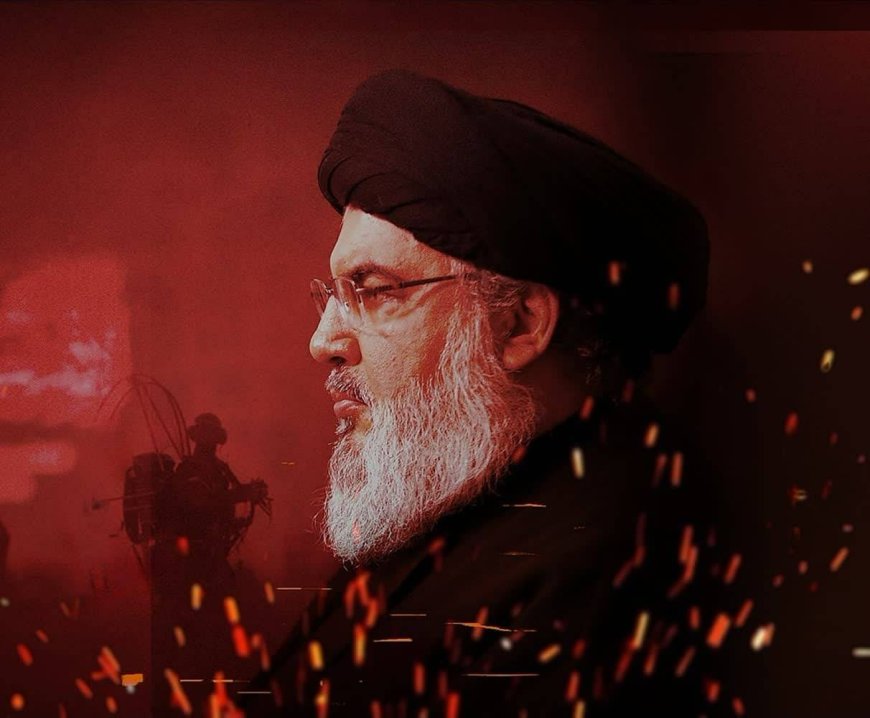Nasrallah Breaks the Silence: More Uncertainty in the Face of Hezbollah's Next Steps?
In the nascent stages of the Gaza conflict in the besieged Gaza Strip, various reports circulated regarding the forthcoming speech by Sayyed Hassan Nasrallah, the Secretary-General of Hezbollah. However, official sources and media later confirmed the postponement of his address. After nearly a month of barbaric Israeli war against Gazans, Mr. Nasrallah has ended his deliberate strategy of silence and officially declared his position.

In the present, the resistance forces, encompassing not only the Palestinian resistance but also other factions such as the Iraqi resistance and Yemen's Ansarullah Movement, are operating in alignment with the Palestinian resistance. Through his calculated employment of silence, the leader of Hezbollah tactically averted impulsive military actions. This rational approach has disoriented the Israeli regime, rendering the Zionist leaders unable to prognosticate the subsequent stages of the war. Despite comprehensive support from its Western traditional backers, the Israeli regime has failed to gain the upper hand over the Palestinian resistance thus far.
Mr. Nasrallah's long-awaited speech carried significant messages for both the Palestinian resistance and the Zionists, particularly their American supporters. He unequivocally reiterated his backing of the valiant military endeavors of the Palestinian resistance, emphasizing that Hezbollah solely aims for Palestinian victory without ulterior motives. Additionally, he conveyed a message to the Americans, highlighting that the survival of the Zionist regime has been contingent upon United States support. Should this support persist, the Axis of Resistance will strive to entirely expel the American invaders from the West Asia region and target the American fleet stationed there.
Nasrallah correctly noted that Hezbollah has been active since the second day of Operation Al-Aqsa Storm and will continue its course of action. However, he refrained from explicitly disclosing Hezbollah's next steps within the context of the Gaza war. This has further perplexed the Zionists and their supporters, who lack a clear understanding of the resistance front's goals and the methods employed in forthcoming confrontations. In fact, the Zionists and their American supporters remain uncertain whether the strikes on American military bases and Israel's espionage and radar systems in southern Lebanon should be interpreted as defensive measures or as a prelude to a wider offensive.
Subsequent to Nasrallah's speech, Western media swiftly embarked upon entirely false discussions surrounding Hezbollah’s alleged weakness and retreat. This is despite the fact that less than a day after Nasrallah's address, a video emerged depicting the Lebanese Islamic Resistance employing a heavy barrage of Borkan rockets, weighing over 500 kg, for the first time in recent weeks. In response to the Israeli army's use of heavy bombs to target resistance positions in southern Lebanon, Hezbollah opted to utilize its potent and destructive rockets to strike Zionist espionage facilities near the border with Lebanon.
The Lebanese resistance's entry into a new phase of the battle in northern Israel, following Nasrallah's speech, serves as a stern warning against the atrocities committed by the Zionists, particularly in Gaza. The political and military leaders of the Zionist regime, who incessantly assert that Hezbollah's involvement in the conflict would result in Lebanon's destruction akin to Gaza, now find themselves imperiled and completely vulnerable to the missile power, drones, and rockets of the Lebanese resistance. Numerous settlements in northern Israel lie within the range of Borkan rockets, and cities like Kiryat Shmona and Shlomi would face utter devastation by these sophisticated missiles.
Given the advanced characteristics of the Borkan rockets, which have garnered valuable operational experience in Syria, it appears that the Israeli defense systems are ill-equipped to counter them effectively. The impact of striking just two Borkan rockets at any of the Israeli regime's spy installations near south Lebanon shall reduce them to ruins.













































